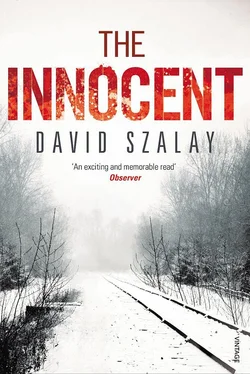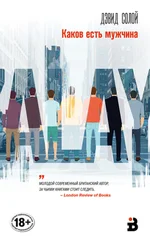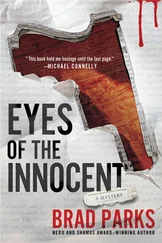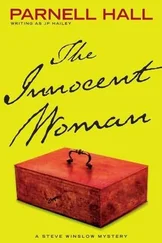‘Yes. Do what you want with it. Throw it away.’ She said this without vehemence, almost placidly, with a sort of smile.
‘Throw it away?’
‘Have you looked at it?’
‘No.’
For a moment, only for a moment, she looked into my face, trying to see whether I was telling the truth. I think she thought I was lying. (Though I was not – I had not looked at it. Not then.) Perhaps that’s why she said, ‘I don’t want it. Throw it away.’
‘Okay. If that’s what you want …’
‘It’s what I want. I’m ashamed of it.’
‘Why?’
‘I just am.’ She smiled. Then she said she was sorry to trouble me, but she had arrived in town that morning and had nowhere to stay. I had said I might be able to help.
It was no small thing, in 1948, to find living space in Sverdlovsk. The population had doubled in only a few years. To my knowledge, there was only one immediate source of empty space – and, of course, we were not supposed to use it. Still – and I write this with some shame – I looked through the list, and found a professor of plant sciences at the Urals State Technical University – Yakov Shtern was his name – who had lived in a few square metres on Karl Libknekht Street. I went to see the place on my own, and found some of the neighbours in the process of moving in. ‘What are you doing?’ I said. ‘Who are you? This room was supposed to be sealed.’ I shooed them off and went in myself. It was quite spacious, and had obviously been vacated in a hurry. The bed was unmade. Things were scattered on the floor. The shelves had been thoroughly searched. There was a stale, unpleasant odour emanating from the leftovers of a meal, now mouldy, on the table. I opened the single large window, which overlooked the street, and let in some fresh air. I threw out the mouldy leftovers. I tidied up.
The next morning I showed it to her. ‘Whose room is it?’ she said. When I told her, she seemed surprised, though I don’t know how else she thought I would find something. She asked how long she would be able to stay there. ‘I don’t know,’ I said.
Over the next few weeks, the last weeks of summer, I went to see her sometimes. She knew no-one in Sverdlovsk. No-one who would see her anyway. Sometimes I took her to lunch at the Ural restaurant, which had opened since the war and was nearby. She had very little money, and had left Metelyev Log with only one small suitcase, so I bought her some new clothes at the Ministry of State Security store, and a pair of shoes, as well as soap and some other necessities. Once or twice, I took her to the Turkish baths – there was no hot water in Shtern’s flat – and signed her in to the First Department.
It was in those weeks too, the last weeks of summer, that my final meeting with her husband took place in my office one evening. ‘Some tea and sandwiches, please,’ I said to Voronin, when he ushered him in. ‘Oh, and some cigarettes.’ Then I sat down. Not at my desk, on the straight-backed seat usually used by visitors, and indicated to Lozovsky to take the chaise longue. ‘Please.’ He hesitated for a moment. He looked tired and had lost weight. His shoes had no laces.
‘This isn’t a formal interview,’ I said. ‘As you see there’s no stenographer. No witnesses. There’ll be no record of what we say. I just wanted to talk to you. And if you want to ask me anything, feel free.’
‘Has my wife been arrested?’ he said immediately.
‘No. Why would she be?’
‘I don’t know. But then I don’t know why I was. And I don’t expect you’ll tell me.’
‘I will,’ I said.
Voronin wheeled in the tea and sandwiches. The first thing Lozovsky wanted, however, was a cigarette. Unfortunately I didn’t have any matches, and had to ask Voronin to light it for him. ‘Leave the matches,’ I said. I passed Lozovsky an ashtray and for a minute or two he smoked in silence. Then he had some tea. ‘Am I allowed to know what happened to Yudin?’ he said.
‘I don’t see why not. He was brought to Sverdlovsk. A ministry doctor had a look at him.’
‘And?’
‘And he’s been sent home.’
‘Home?’
‘To live with his mother. She lives in a settlement near here. You shouldn’t have been so stubborn. You should have signed the form.’ He stared at me for what seemed like a long time. I shrugged. ‘Well, it’s made no difference,’ I said. ‘Except for you.’ As soon as I had said this I saw the implication of it, and that he had seen it too. He opened his mouth to speak. Then he saw that I knew what he was going to say, and this seemed to satisfy him. ‘May I?’ He indicated the sandwiches.
‘Of course. They’re for you.’
He wolfed down one or two sandwiches very quickly. He must have been hungry, but in fact he always ate like that. I had noticed it at Metelyev Log.
I leaned over and switched on the light on my desk. ‘I’ve been wanting to ask you,’ I said. ‘Why did you leave the Second Medical Institute and take the job at Metelyev Log? It was a significant step down.’
‘That was years ago,’ he said, with his mouth full.
‘I know.’
He seemed to have nothing more to say on the subject, so while he finished eating, I said, ‘They’re going to close Metelyev Log, you know, and transfer the patients to Kisegach.’
‘Are they?’
‘Yes. Your work was the only thing that justified keeping it open –’
‘You said you’d tell me why I was arrested.’
I did not like the way he interrupted me. I was trying to be friendly, though now my voice probably lost some of its friendliness. ‘There was something you wrote in the thirties,’ I said. ‘A piece for a scientific journal. In 1936. I’m sure you know the piece I’m talking about. In it you speculated that the sense of order we have about the world is essentially subjective, is simply a product of our minds. We talked about these things when I was at Metelyev Log. There was a fuss at the time – it turned political – you had influential friends who protected you. Well, now someone’s found it, and they want to talk to you about it. I presume that’s what’s happened. I don’t know for sure.’ Having finished the sandwiches, he lit a cigarette. ‘Of course, you wrote it twelve years ago. Your ideas might have moved on since then.’ My tone was questioning. ‘Have they? As I said, this is entirely informal. Whatever you say will stay in this room. You have my word on that. I’m just interested.’
‘Your word?’ he said.
I now think that this was probably sarcastic. Then, I took it as a sincere question and said, ‘Yes.’
‘The piece you’re talking about was a scientific paper.’
‘Yes.’
‘Its subject was neuropsychology. Politics had nothing to do with it.’
‘Well …’ I smiled. ‘Politics has to do with everything. Neither of us is in a position to say what is political and what isn’t. No one is. And no one can escape from politics. Not you. Not me. Except perhaps through total solitude. Robinson Crusoe. Until man Friday turns up – then you have politics.’ I was uneasily aware of trying to impress him. ‘You must be able to see how what you wrote in that paper might turn into a political issue?’
‘It was turned into a political issue by other people. It’s got nothing to do with me. My work was pure science.’
‘Even if the things they said followed logically, even inevitably, from your ideas?’
‘What things? What did they say? I don’t know.’
‘Taking your ideas as a starting point, they said, in so many words, that there’s no such thing as truth, that life is inherently meaningless, history just a meaningless struggle of all against all. A sort of nihilism, in other words. Or at least an extreme form of scepticism, which is in effect the same thing. Is that what you think too? I’m just interested. You can speak honestly to me.’ When he did not, I smiled and said, ‘Well, I think it is what you think.’
Читать дальше












